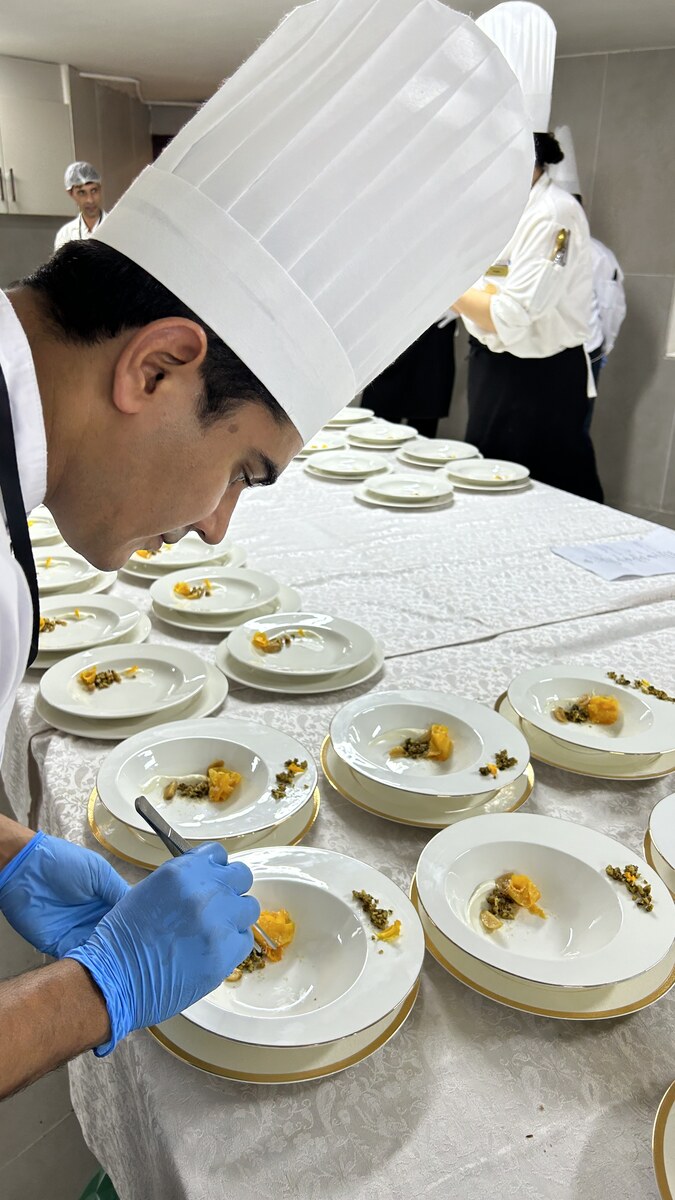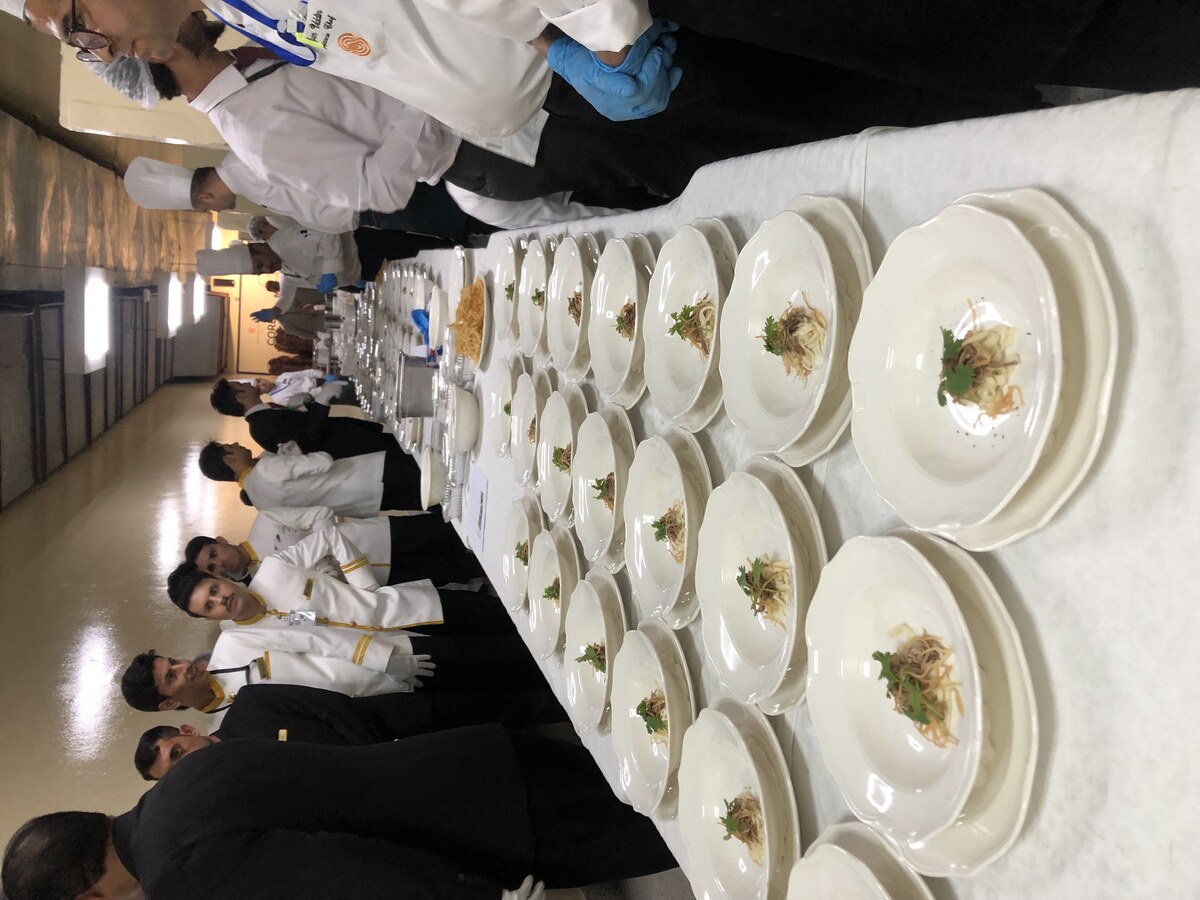KARACHI: A Karachi-based chef, specially flown to Islamabad to oversee meals for foreign dignitaries at the Shanghai Cooperation Organization (SCO) Summit, said this week his team ensured diversity in the menu to respect cultural sensitivities, recalling they avoided serving red meat to the Indian delegation.
The 23rd SCO Council of Heads of Government took place on October 15 and 16, bringing together political leaders from Russia, China, India, Kazakhstan, Tajikistan and other participating nations, including Pakistan.
Chef Asad Monga, 32, was invited to join the culinary experts at Islamabad’s popular Serena Hotel for the summit’s lunch and dinner services.
He informed the menu not only reflected international flavors but also highlighted local Pakistani dishes such as mutton chops and flatbread with minced meat filling. However, his team was also sensitive to the dietary preferences of the visiting delegates.
“[It was] just a good, well rounded mix of food to showcase our regional capabilities as people and as cooks, and also keeping in mind the diverse set of people that were coming to eat the food so that it registers with their palette also,” he told Arab News on Tuesday.
“We couldn’t serve red meat to the Indian delegates, so we had a vegetarian and chicken-based menu for that,” he added.

Chef Asad Monga (center in the first row) poses for a picture with other chefs during Shanghai Cooperation Organization (SCO) Summit held in Pakistan's capital, Islamabad, on October 15-16, 2024. (Asad Monga)
Indian External Affairs Minister Subramanyam Jaishankar, who led his country’s delegation at the SCO Summit, was the first high-profile official from New Delhi to visit Pakistan in nearly a decade.
Although he did not hold formal bilateral meetings in Islamabad, Pakistani officials described his trip as an “ice breaker” amid hopes in both countries for a thaw in the frosty relations between the two nuclear-armed neighbors.
“The meal started with the Mezze Platter. There was Yousaf Labneh on the menu, and of course, butters were served with Sumac as a condiment,” Monga said.
“The Middle Eastern influence in our region is strong, and when you serve food in a restaurant or a five-star hotel, you will always find some Middle Eastern cuisine on the table,” he added.

A chef prepares food for the guests at Serena Hotel during Shanghai Cooperation Organization (SCO) Summit held in Pakistan's capital, Islamabad, on October 15-16, 2024. (Asad Monga)
Monga, who was born and raised in Karachi, became passionate about cooking and chose culinary school after A Levels.
He enrolled at Taylor’s University in Kuala Lumpur, Malaysia, in 2011 as part of a dual degree program. After gaining international experience, he returned to Pakistan in late 2016 for personal reasons.
“For Pakistan to succeed in the future, we need to develop a strong service-based economy that focuses on hospitality and the culinary arts,” he reflected, based on his experience of serving the SCO delegates.

Waiters line up to carry food plates for the guests attending Shanghai Cooperation Organization (SCO) Summit in Islamabad, Pakistan. (Asad Monga)
He noted that by promoting chefs and expanding the hospitality industry, Pakistan could project its warm hospitality to the world and cultivate a softer image.
Monga also shared his desire to set up a small culinary school in the mountains, where he could forage ingredients, ferment them, and develop flavor catalogs.
“I hope to develop a school there where I can teach students who are interested in learning,” Monga said. “They can come and collaborate with me, and together we can shape the future of Pakistani cuisine and its culinary landscape.”















